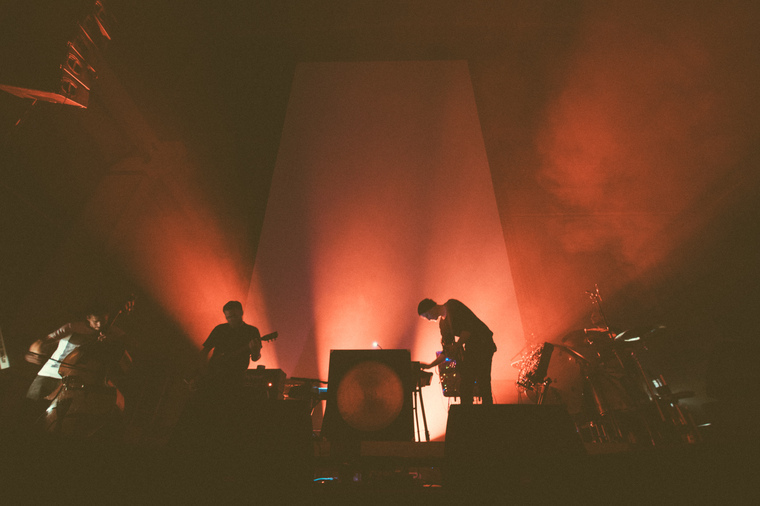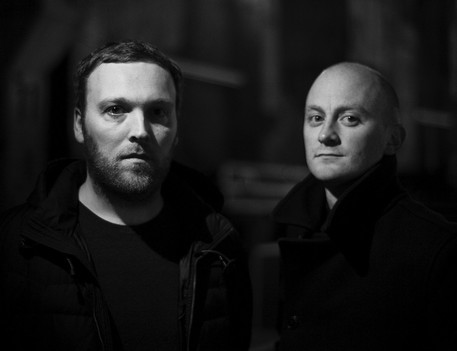Written by:
Simona Mantarlian
Share article:
Atonal meeting
SUMS is David Letellier aka Kangding Ray (an electronic musician signed on the raster-noton and Stroboscopic Artefacts labels) and Barry Burns (multi-instrumentalist and composer active in the Scottish band Mogwai). On the one hand this collaboration evidences the growing influence of electronic music on Mogwai (particularly on their last album Rave Tapes), and on the other, the ongoing presence of rock (usually associated with a prefix, whether it’s post, punk, or art) in Kangding Ray’s music.
The specially commissioned SUMS project involved these two genre-leading artists on a range of electronic and amplified instruments, as well as drumming wizard Merlin Ettore and contra-bassist Robert Lucaciu, to create a soundscape that blends elements of both their musical legacies.
How did you two get in touch? Did you know each other already? How did the collaboration come up?
Barry Burns: We met through a mutual friend of ours. David was asked by Atonal to do a performance, and for some reason, he chose me (laughs).
Which reason?
Kangding Ray: Atonal approached me and they told me “we want you to do something next year, something big, that it would fit the space”. I played at Atonal two years ago and this year I had a carte blanche to do something really special. I didn’t want to do something only on my own; because that would have felt rather egocentric and I also wanted to explore working with someone else, doing collaboration. I wanted to involve someone who is a bit outside the techno world where I’m playing usually, outside of the club sphere but also one that can link to the roots where I come from, before doing electronic music, so Mogwai was the first on the list.
What was your connection to the post-rock scene, before doing electronic music?
KR: For me that was the music which changed my vision – the fact that bands like Mogwai would do ten minutes long tracks, breaking the typical verse / chorus theme, breaking the structures and concentrating more on the atmosphere and the instrumental aspect, being not only about the voice – this opened a lot of doors for me, and that’s where I started to be interested in this other approach to music. I think there are a lot of connections between this and electronic music; same sort of attitude and same sort of concept behind, actually. It’s just the instruments that change.
It is true, thinking that a similarity of the work that each of you does is that, the music is very deconstructive.


